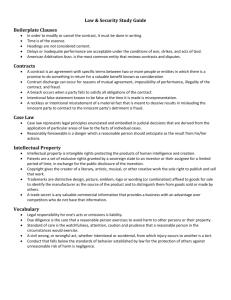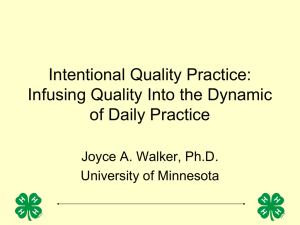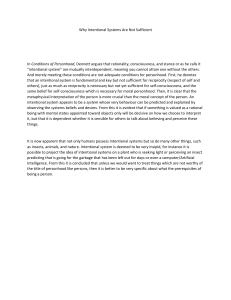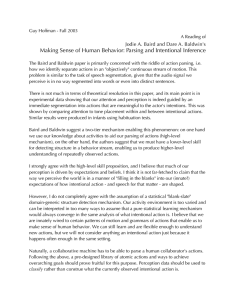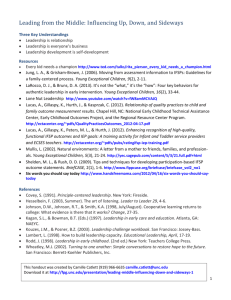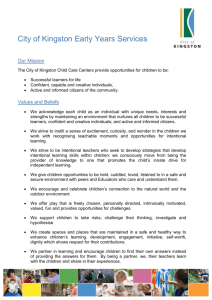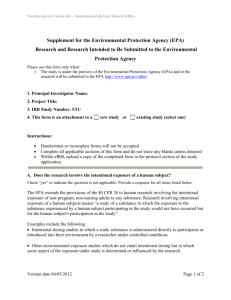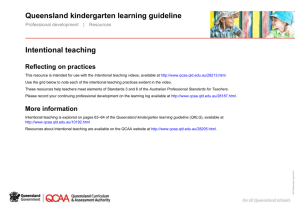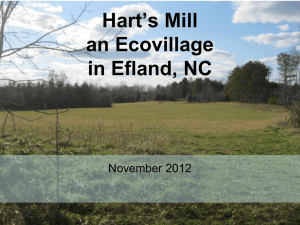Concept Development - Institute for Community Inclusion
advertisement
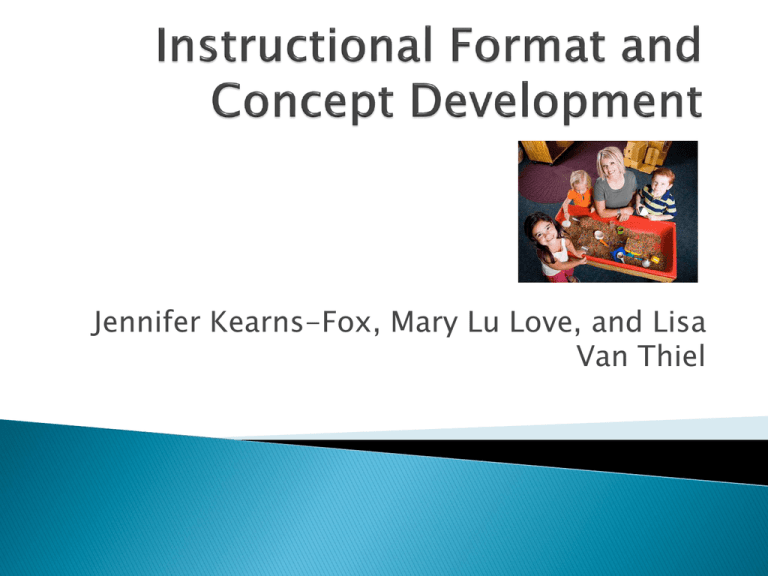
Jennifer Kearns-Fox, Mary Lu Love, and Lisa Van Thiel Intentional teaching OWL strategies Using assessment data to drive instruction Link OWL goals to strategies and instructional formats Apply intentional instruction to improve student outcomes List the knowledge, skills, and attitudes of an intentional teacher. The “Intentional” Teacher aims at clearly defined learning objectives for children, employs instructional strategies likely to help children achieve the objectives, and continually assesses progress and adjusts the strategies based on that assessment.” Ann Epstein 2007 The Intentional Teacher High expectations Planning and management Learning-oriented classroom Engaging activities Thoughtful questioning Feedback Classroom quality Emotional climate Classroom organization Instructional support 28 Domain Average CLASS Averages Across All Teachers Maximum 28 24 21 20 21 16.57 16 13.95 12 6.93 8 4 0 Overall Emotional Support Overall Classroom Organization Overall Instructional Support Focuses on what the teacher does either during the lesson or in providing activities, centers, and materials to maximize students’ engagement and ability to learn. The manner in which the teacher facilitates activities so that students have opportunities to experience, perceive, explore, and utilize materials should be considered. Adapted from CLASS manual Pre-K (2009) Learning increases when teachers focus their questions on content Higher-level questions produce more learning Advanced organizers help students learn new content and reinforce vocabulary More learning occurs when presented informally several times through multiple experiences Increasing wait time fosters more student discourse and child to child interactions. Provide the BIG PICTURE Use multiple modalities Generate discourse including more conversation among children Use questions ◦ To focus learning ◦ To introduce new content ◦ To prompt higher-order thinking Provide wait time Effective facilitation through hands-on opportunities and questions Fire drill Focuses on the teacher’s use of instructional discussions and activities to promote students’ higher-order thinking skills and cognition and the teacher’s focus on understanding rather than rote learning. CLASS Manual Pre-K (2009) Children’s concept development benefits from: Direct experiences and rich language Clear connections between and among concepts Explanatory talk and frequent adult/child conversations Modeling and eliciting Encouraging children to express their explanations, observations, and predictions Collaborative discussion Ask why and how questions Engage children in predictions and experimentation Encourage students to generate ideas for dramatic play, writing narratives, and constructing artwork Build on students’ prior knowledge Go deep into curriculum (four-week units) Connect concepts across content areas Predicting and Experimenting with Eggs Buying Shoes Multiple story readings Morning meeting Center time Small group Let’s Find Out About It/Let’s Talk About It Snack and meals/Outdoors Songs, Word and Letter Play Pull out the sheet labeled Identification of Intentional Teaching in OWL Lessons. 1. Break into groups by number. 2. Select a recorder and reporter. 3. Individually read the lesson. 4. As a group, discuss and answer the question. List the knowledge, skills, and attitudes of an intentional teacher.
